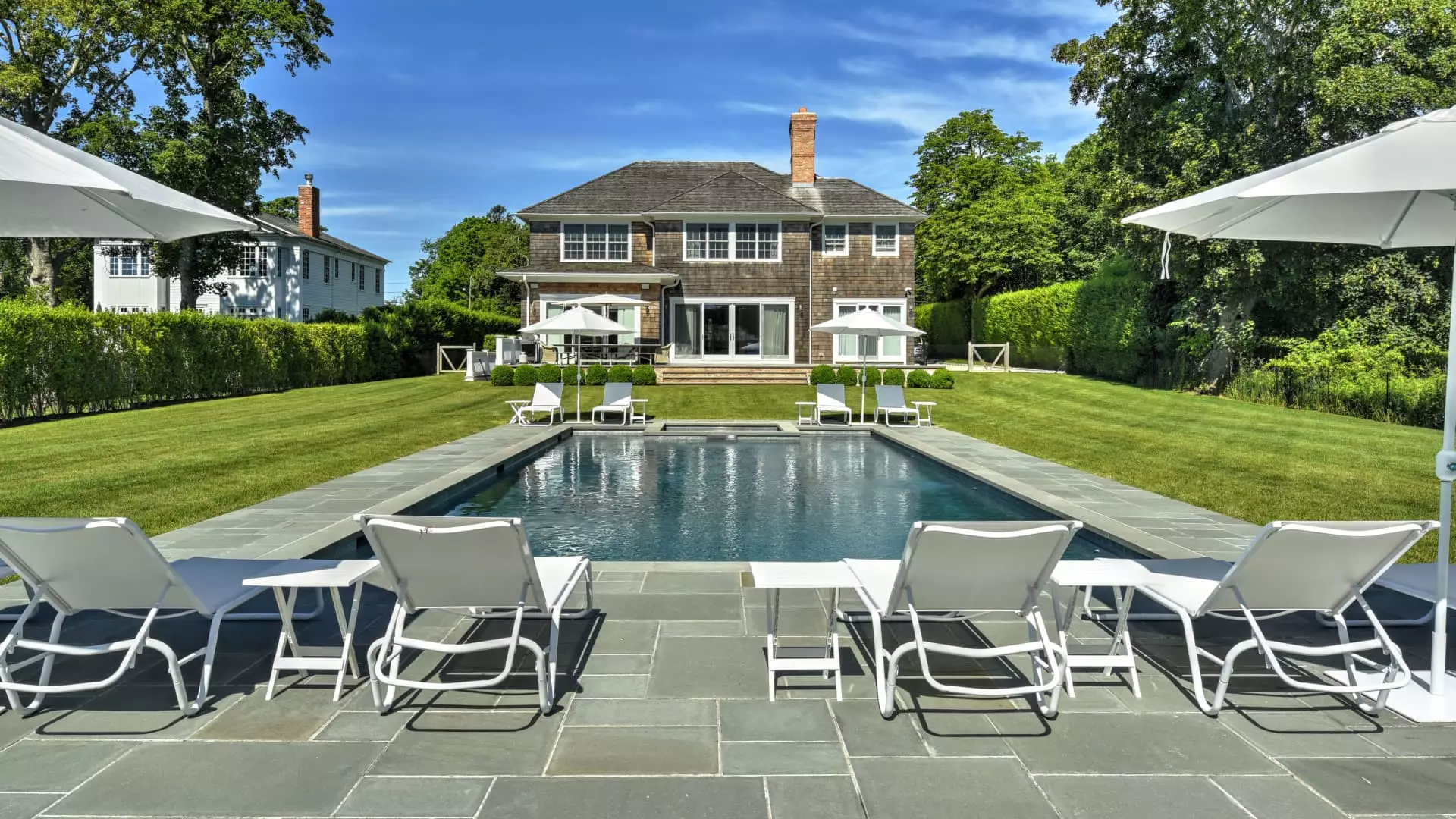The Hamptons, often heralded as the epitome of summer luxury, is experiencing an unsettling shift in its rental market. A staggering 30% reduction in rental activity compared to previous years, as reported by Judi Desiderio of William Raveis Real Estate, raises eyebrows. Brokers who specialize in ultra-high-end properties claim that their revenues have plummeted by as much as 75%. This is no trivial matter; it’s a seismic shift that underscores a growing reluctance among the affluent to splurge in an unpredictable economic environment.
Enzo Morabito from Douglas Elliman noted that “people are holding on to their money,” highlighting the pervasive feeling of uncertainty that now permeates the high-net-worth demographic. It’s almost ironic that the very class that drives the luxury market is now paralyzed by the type of financial angst that was traditionally reserved for the lower-income brackets. The wealthiest among us, it appears, are retreating into a cautious shell, impacting not only those in the real estate business but also the local economy that thrives on their spending.
The Weather Factor: What Role Does Climate Play?
As if economic winds weren’t turbulent enough, the weather has also played an unwelcome role in dampening summer rental expectations. Brokers attribute the late start to this year’s rental season to the dreary, unseasonable weather in late spring. For potential renters accustomed to the sun-soaked allure of the Hamptons, a cold, rainy May could be the nail in the coffin for their vacation plans. The notion that weather could deter affluent renters is rather astounding; it speaks to how lifestyle choices, particularly those associated with wealth, can sometimes be as fragile as a fine crystal.
The blend of economic uncertainty and inclement weather might be creating a perfect storm of hesitation among those who typically book their summer retreats early. Numerous high-end rental properties languish unrented, crying out for the influx of those who typically fill them by early spring. Perhaps more alarming for property owners is the potential long-term fallout. If this season passes with homes left vacant, investors may begin questioning the profitability and viability of their luxury rental ventures in the Hamptons.
The Unseen Influence of Economic Policies
While many factors are complicating this rental season, the role of economic policies, particularly tariffs, cannot be overlooked. The stock market’s unpredictable fluctuations and bureaucratic maneuverings have left even the wealthiest renters feeling vulnerable. One can argue that this “rich-man’s anxiety” might be a byproduct of obsessive compulsiveness, but the reality is that when the stock market wobbles, so do plans for luxury vacations.
The once comforting trajectory of market confidence following the election has been replaced by a palpable sense of dread that potential renters cannot ignore. This isn’t just about renting a luxury home; it’s about making a statement and investing in an experience that they worry could become more costly or less enjoyable should these economic ripples turn into tsunamis.
Opportunity Amidst Crisis: The Silver Lining for Renters
However, every cloud has a silver lining. With the inventory of available rentals increasing, renters are now faced with a wealth of choices, possibly at discounted prices. Brokers suggest that listings have adjusted their rates downwards by 10% to 20%, presenting an opportunity for renters who previously might have been priced out of the ultra-exclusive market. For those willing to capitalize on the current climate, this adversity could transform into an unexpected advantage.
Proponents for the Hamptons lifestyle may argue that this is a lesson in economic cycles, a time to adapt and recognize when market conditions might actually favor the consumer. The ability for homeowners to be flexible—offering shorter stays—could encourage potential renters to test the waters without committing to long-term financial obligations in a precarious market.
The Irony of Deferred Decisions in the Luxury Space
Interestingly, trends among potential renters suggest a pattern of procrastination that seems unique to the affluent. Many appear to be waiting until the last minute, torn between multiple vacation options or just hoping for deeper discounts. This delay in decision-making, whether due to economic anxieties or wishful thinking for better weather and prices, reflects a broader cultural climate where immediate gratification is somehow compromised by an over-analysis of choices.
At the end of the day, this moment of hesitation among the ultra-wealthy, underlined by an unstable economic environment, poses a critical juncture not just for the Hamptons but for luxury markets nationwide. As we delve into the summer, one question prevails: will this be a mere hiccup in the enduring allure of the Hamptons, or is it a sign of a deeper malaise that even the wealthy find hard to escape?

